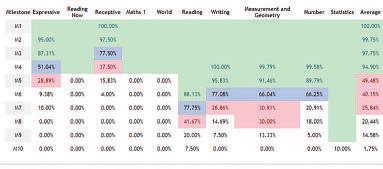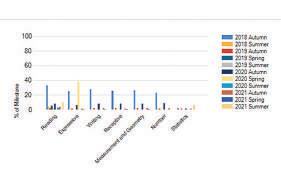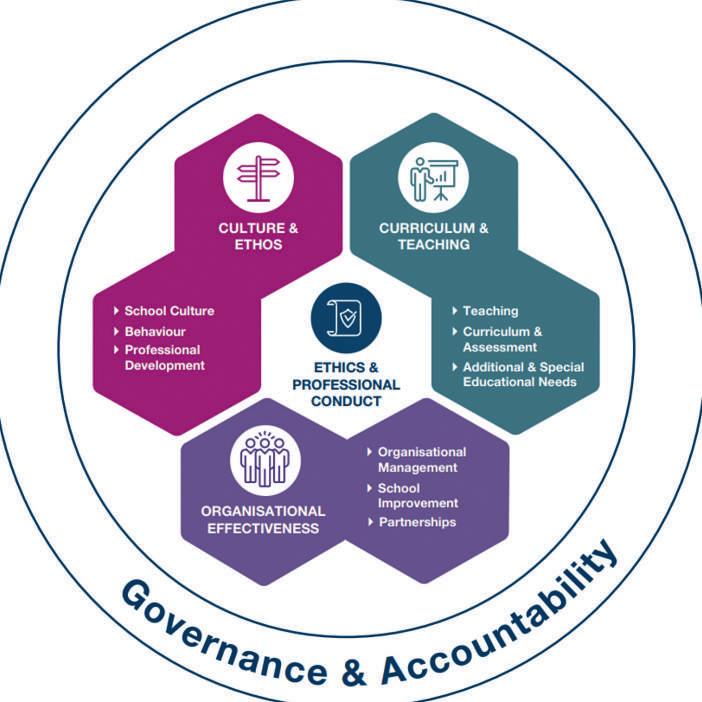
7 minute read
Championing
by nasenCONNECT
FEATURE / 39 ➜ SPOTLIGHT
Championing
Susan Barnes, Head of Apprenticeships at Orchard Hill College and Academy Trust, examines the importance of championing the talents and skills of apprentices with SEND, and of showing the value that young people with SEND bring to businesses.
ocated across London, Surrey, Sussex and L Berkshire, Orchard Hill College and Academy Trust is a family of specialist education providers for pupils and students from nursery to further education. With six college centres and 15 special schools, the Trust supports students with a wide range of learning abilities and additional needs including complex autism, speech, language and communication difficulties, social, emotional and mental health needs and physical disabilities including multi-sensory impairment and complex health needs.
The Trust’s strong community and stakeholder networks mean students benefit from access to a greater range of opportunities. Part of our mission is to support, enable and champion the talents, skills and rights of the most complex and vulnerable people in our society in order to help them realise their potential, promote well-being and transform lives; apprenticeships is one of our areas of focus.
Apprenticeships were given prominence at the Trust back in 2016 when our first group of apprentices were welcomed. In 2017, following a successful pilot delivering customer service to apprentices with SEND, Orchard Hill College became an approved provider on the ESFA Register of Apprenticeship Training Providers. Apprenticeships are now offered at level 2 and beyond in healthcare, teaching and learning, and customer service. Over the next three years, we hope to ensure that every college centre and academy within the Trust, employs at least one apprentice.


ENTERING THE WORLD OF WORK
Young people who have special education needs, learning difficulties or disabilities are less likely to become apprentices than their peers. As part of the journey to transform this, it’s important to celebrate the achievements of apprentices with SEND and to spotlight the impact on students; there are many inspiring tales.
Through participation in work-based learning, our apprentices develop social and practical skills, such as financial
BIO
S U S A N B A R N E S
Susan Barnes is Head of Apprenticeships at Orchard Hill College. Initially trained as a primary school teacher, she began working with NEET learners 15 years ago, going on to assist with ‘Train to Gain’ and ‘Skills For Life’ projects with the Department of Transport and the NHS.

40 / FEATURE ➜ SPOTLIGHT

independence, as well as improving their physical and social well-being.
Matt is an apprentice with SEND at Orchard Hill College’s Digital School. After completing his course, Matt volunteered with the Digital School, before advancing his career through taking on an apprenticeship position full time.
Matt said: “Part of my role is being a learning support assistant at some of the academies in the Trust, where I get to share my digital knowledge. The biggest highlight of my job is helping students and members of my local community to enjoy technology. ”
Similarly, SEND apprentice Claire began on a Level 2 customer service apprenticeship and progressed to Level 3 teaching assistant apprenticeship. Head of Learning Centre, Kerry Macey said: “Claire’s apprenticeship has provided her with a good balance of theory and practical work, positively influencing her abilities to support our learners in an inclusive way whilst ensuring they are meeting their outcomes. In addition to this, Claire’s skill set has grown; she is able to adapt her teaching style, bringing lots of enthusiasm to enrich student lives. Claire is a dedicated staff member and a shining example of apprenticeship success at Orchard Hill College.”
Examples such as these highlight the impact of apprenticeships for young people with SEND; from improving mental health and enhancing digital skills, to boosting organisational skills and improving maths and English.

ENGAGE EMPLOYERS
Part of the challenge for all educational organisations is to show the compelling value that businesses can gain from employing young people with SEND as apprentices. Equally, this means reducing the barriers that employers express concerns over.
The most common concern is resource related, and the amount of extra time and cost required to support SEND apprentices. However, in instances that require further resource, low-cost options that take minimal input to set up are adequate. An element of confusion exists over how and what employers do to support apprentices with SEND. To make this process as smooth as possible, we introduced a college mentor to act as an additional link between the employer line manager and the apprentice tutor, providing extra support for students as well as employers. Our experience was that, once employers recognise the students’ skills and what they can rather than can’t do, their understanding of the benefits increase while their concerns reduce. SEND apprentices present significant long-term value for employers. Economically, it is a very cost-effective solution as people with SEND often remain in job roles longer and take fewer sick days than their peers. This means employers benefit from reduced staff turnover and the associated costs, together with a greater level of reliability, loyalty and commitment. Expansion of the recruitment talent pool in this way adds a whole new dimension to Apprenticeships SKILLS FOR LIFE






If you are an employer and would like to be part of the solution to transform the lives of young people and find out more about the Trust, visit www.ohcat.org or contact Susan Barnes, Head of Apprenticeships on 0345 402 0453.
the workforce, and employers often notice improvements in morale.
Our ability to adapt has really come into play since the outbreak of coronavirus, and at the peak we were juggling the stipulations of different training venues whilst balancing social distancing with off-the-job training, which was changed to virtual training for a period. Displaying a level of flexibility for employers and students is imperative at any time but especially over the past 12 months.
CHANGE ATTITUDES TO SECURE PLACEMENTS
We are an ambitious team, and our students are incredibly ambitious too so, with the foundations in place, we hope to further increase the number of young people with SEND in apprenticeships.
As education providers, we all need to be more proactive in approaching employers, to demonstrate that it is a quick, smooth process, and really showcase the value for everyone. Our challenge is to engage, educate and persuade by illustrating the mutual benefits of a work placement. Let’s change attitudes, and perceived ideas, and secure more work placements for young people with SEND.


























